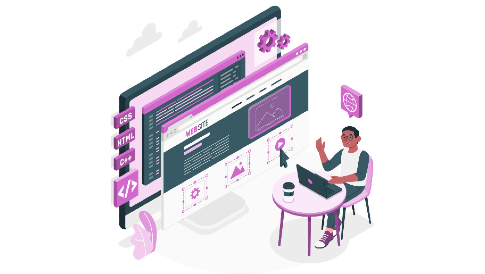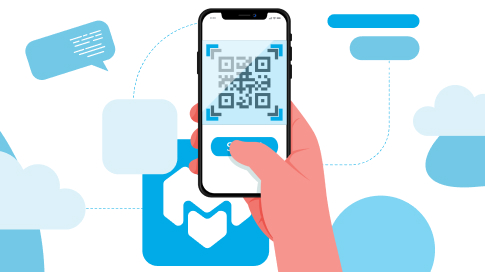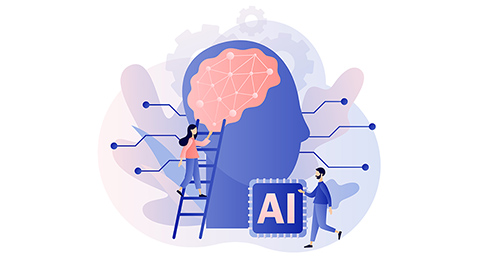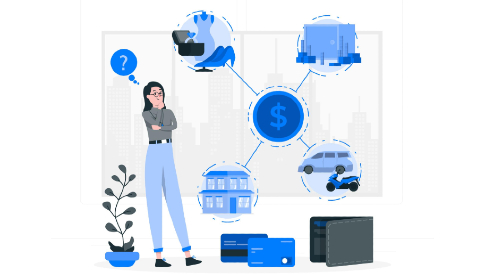How AI is Leading Long-Awaited Digital Transformation in Accounts Payable Processes
While the post-pandemic landscape has seen the widespread adoption of digital transformation initiatives across a range of industries, AP automation has been slower to take hold. Now, as an artificial intelligence boom expands the capabilities of accounts payable, we’re seeing a revolution take place. Late supplier payments, slow approval times, human error, and high invoice processing costs have all contributed to the well-documented inefficiencies harming accounts payable for businesses. This is a particular issue as suppliers rely on prompt invoicing and the collection of payments to manage their cash inflows, making delays more harmful to the relationships they build.
In a time-sensitive industry, accounts payable processes must be accurate at all times. This means that mastering AP can be a tall order for even the most resourceful of businesses. According to Kyocera data, 56% of businesses experience cash flow forecasting problems due to AP issues, while 63% state that reducing their processing costs is a top priority. Despite this, just 5% of organizations are using a fully automated accounts payable process.
Automation tools form a comprehensive solution to enhance AP efficiency throughout supply chains, and recent innovations in artificial intelligence may be the catalyst for widespread change in the field. With this in mind, let’s explore how AI can transform digital transformation in accounts payable processes:
Data-Driven Decisions
The ability to access integrated, sharable reporting tools that span a range of payment types can provide extra value for suppliers and improve the quality of decision-making. Autonomous, real-time reporting helps to improve remittance reconciliation while reducing accounts payable workloads.
With the help of AI tools like machine learning (ML), management queries can be rapidly resolved using contextual information that helps to answer queries surrounding the value of open payables, anticipated cash flows, and the volume of payments to be cleared for accounting ledgers to close.
Easy access to essential information, query resolutions, and action on outstanding AP processes can help to shorten payment resolution times from weeks to a matter of minutes.
Life Without Human Error
One of the most damaging facets of accounts payable processes is that they can be riddled with paperwork and human errors attached to manual data entry, accounting, and storing key documents like invoices.
Using intelligent AP automation tools, error-prone actions like data entry and the recording of invoice information are streamlined into autonomous actions.
With the help of tools like optical character recognition (OCR) technology to accurately extract information from invoices across a variety of formats like PDFs, scanned documents, or EDI, essential data from invoices can be automatically uploaded onto AP systems to make prompt payments without the risk of incorrect values recorded or excessive staff hours spent on needless data entry.
Stamping Out Fraud
Thanks to machine learning, it’s also possible to rapidly detect and flag inconsistencies within invoices, flagging them for review and potential fraudulent activity. This means that AI can help to form a safety net to ensure that your business doesn’t make any payments that fall outside of its obligations, creating a safeguard for your finances.
Artificial intelligence can take this automation framework and use it to cross-check invoices against internal controls and external regulations to build a conducive compliance framework to protect against prospective issues that fall within relevant jurisdictions throughout the supply chain.
Intelligent Integrations
Crucially, artificial intelligence AP automation processes can seamlessly integrate with enterprise resource planning (ERP) systems to help improve the quality of data and reporting at the disposal of businesses. This helps to ensure a level of consistency throughout the company without the danger of departmental silos impacting the quality of decisions made within AP processes.
Access to holistic financial data oversights can be a core component of running a sustainable operation, and intelligent integrations pave the way for a greater level of efficiency when it matters most.
Reducing Costs
Implementing AI and AP processes also paves the way for widespread cost savings, and helps the accounts payable department to take advantage of more early payment discounts. With the help of artificial intelligence and ML algorithms, it’s possible to identify areas for evaluating cash flow and discount terms.
AP automation can also take advantage of robotic process automation (RPA), which can mechanize manual processes like document management, filing, and data entry, lowering the need to allocate staff hours that can be better spent elsewhere.
Embracing AP Automation
Thanks to the ongoing artificial intelligence boom, the accounts payable landscape is embracing digital transformation tools at a quickening pace. Not only are these innovations paving the way for unprecedented accuracy, but they’re also empowering more businesses to automate time-consuming processes to free staff up to focus on other operational efficiencies.
Excess paperwork and payment delays have been a long-standing burden in the AP landscape, but AI tools are helping the industry embrace digital transformation. In overcoming its old error-prone processes, AP automation can help to bring more businesses into the modern day.




Leave a Reply